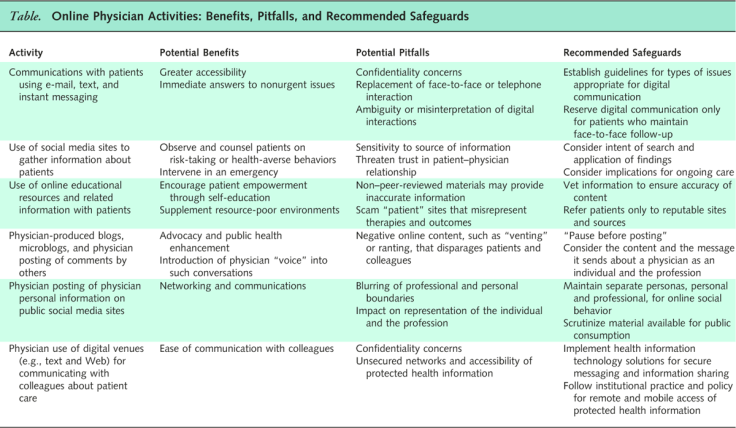Doctors, Stop ‘Friending’ Patients on Facebook

New recommendations advise doctors and patients to refrain from "friending" each other on Facebook, acknowledging the social networking site's potential to break down professional boundaries.
Facebook can complicate all sorts of relationships. Children and parents, teachers and students, and employees and supervisors all stand to benefit from keeping their personal lives separate from each other online. This is especially true for doctors- access to personal information aside from what's shared in the physician-patient relationship can interfere with proper care.
The Wall Street Journal reported last month that 35 percent of doctors in a Journal of General Internal Medicine survey had received Facebook "friend" requests from patients or their family members, and that 58 percent of those always rejected them; that still leaves a significant number of physicians setting themselves up for ethical ambiguity.
The American College of Physicians (ACP) and the Federation of State Medical Boards (FSMB) laid out ethical guidelines for physicians' Internet activities in a new policy paper about online medical professionalism, published in the new edition of the Annals of Internal Medicine.
"It is important for physicians to be aware of the implications for confidentiality and how the use of online media for non-clinical purposes impacts trust in the medical profession," said Dr. Humayun Chaudhry, president and CEO of the FSMB, in a news release.
The guidelines acknowledge social media's potential in educating and reaching out to patients, but remind physicians of the need to maintain patient confidentiality and stay professional when using platforms like blogs, Facebook, Twitter, online forums, cell phone photography, texting, and email.
Among other things, the ACP and FSMB advise physicians to:
- Strictly limit how they communicate with patients, and gain patient consent before using any new media.
- Keep professional and personal online personas separate, and not "friend" or contact patients through sites like Facebook and Twitter.
- Use extreme caution when text messaging patients for medical interactions, and only do so with the patient's consent.
- Only use e-mail within an established patient-physician relationship, with patient consent.
- Exercise judgment in giving clinical advice when non-patients approach them online, and encourage them to make an official medical appointment.
- Actively police personal blogs and social media pages for unprofessional, irresponsible, or incriminating content, and avoid posting confidential patient information.
- Avoid tracking patients through Google and social networks, especially when it's to satisfy voyeuristic curiosity and is irrelevant to providing care. This threatens trust in the patient-physician relationship.
- Obtain formal patient consent before taking any photographs of patients, even if they are for clinical records.
- Only use secure devices to record or transmit patient information.
- Thoroughly deidentify any clinical anecdotes they share publicly, and obtain patient consent if possible.
Above all, the recommendations stress that online communication should not replace or threaten direct contact with patients, whether it's face-to-face, by phone, or video telemedicine. Communication via email or social networks may be immediate and accessible, but can easily fall into the wrong hands.
What do you think- are you comfortable communicating with your doctor on Facebook, or through other social media?



























